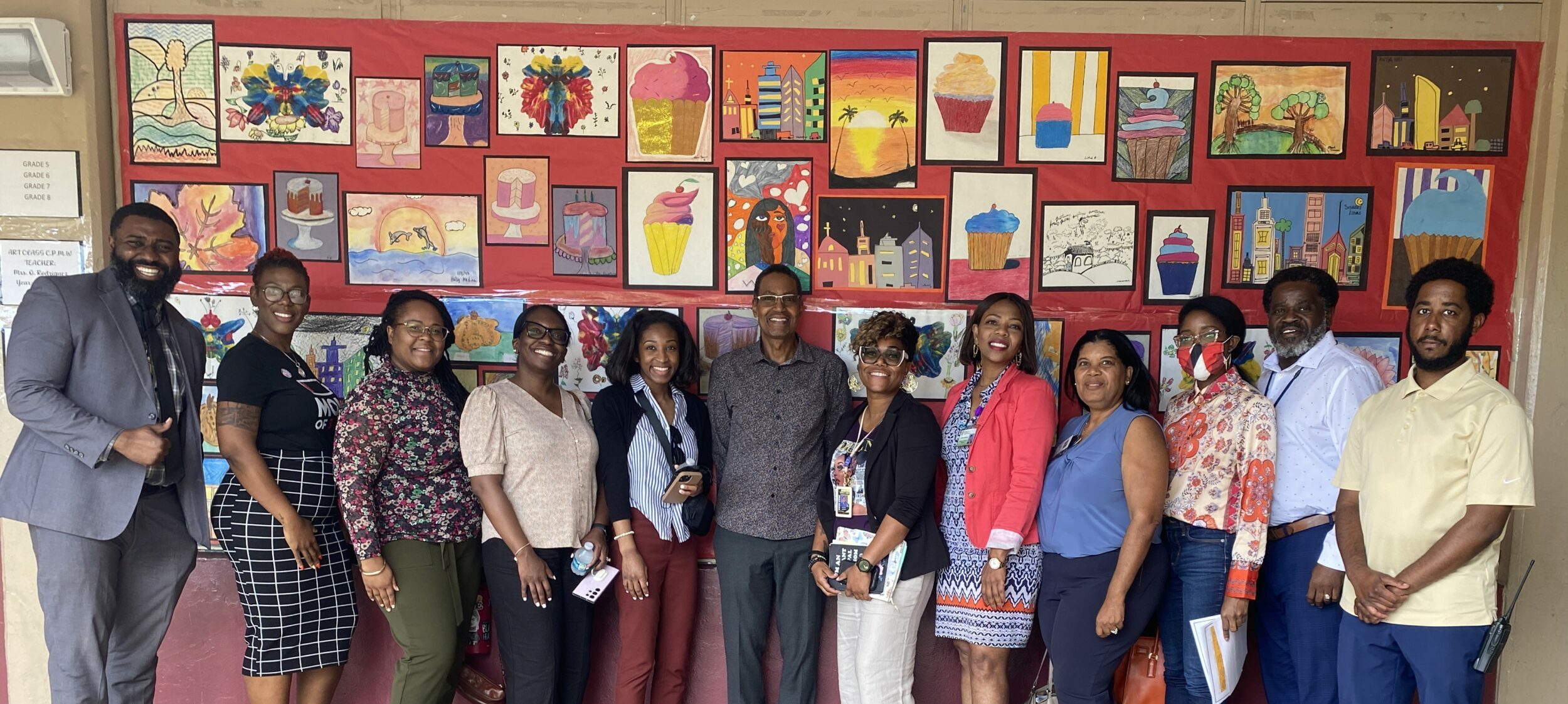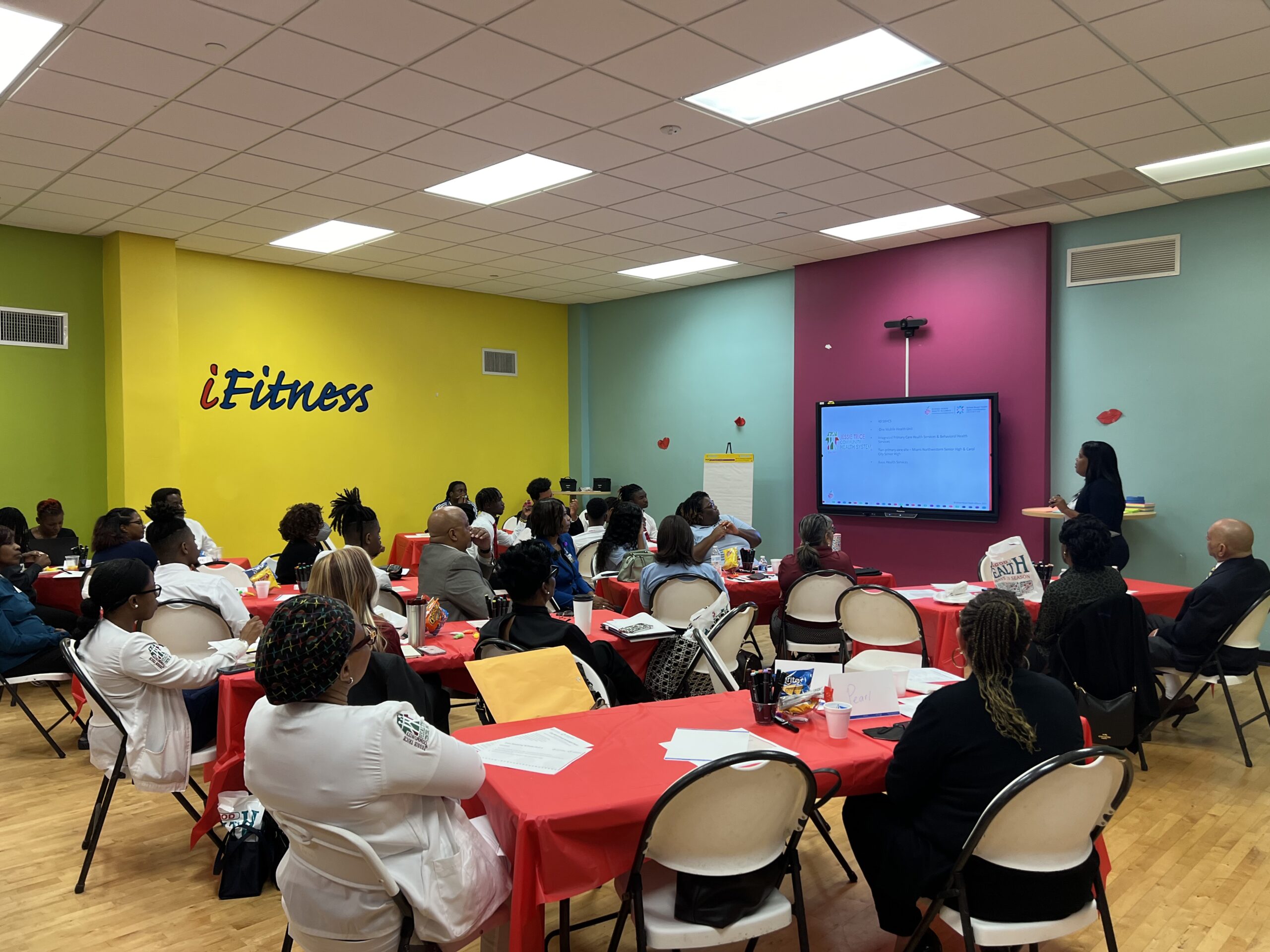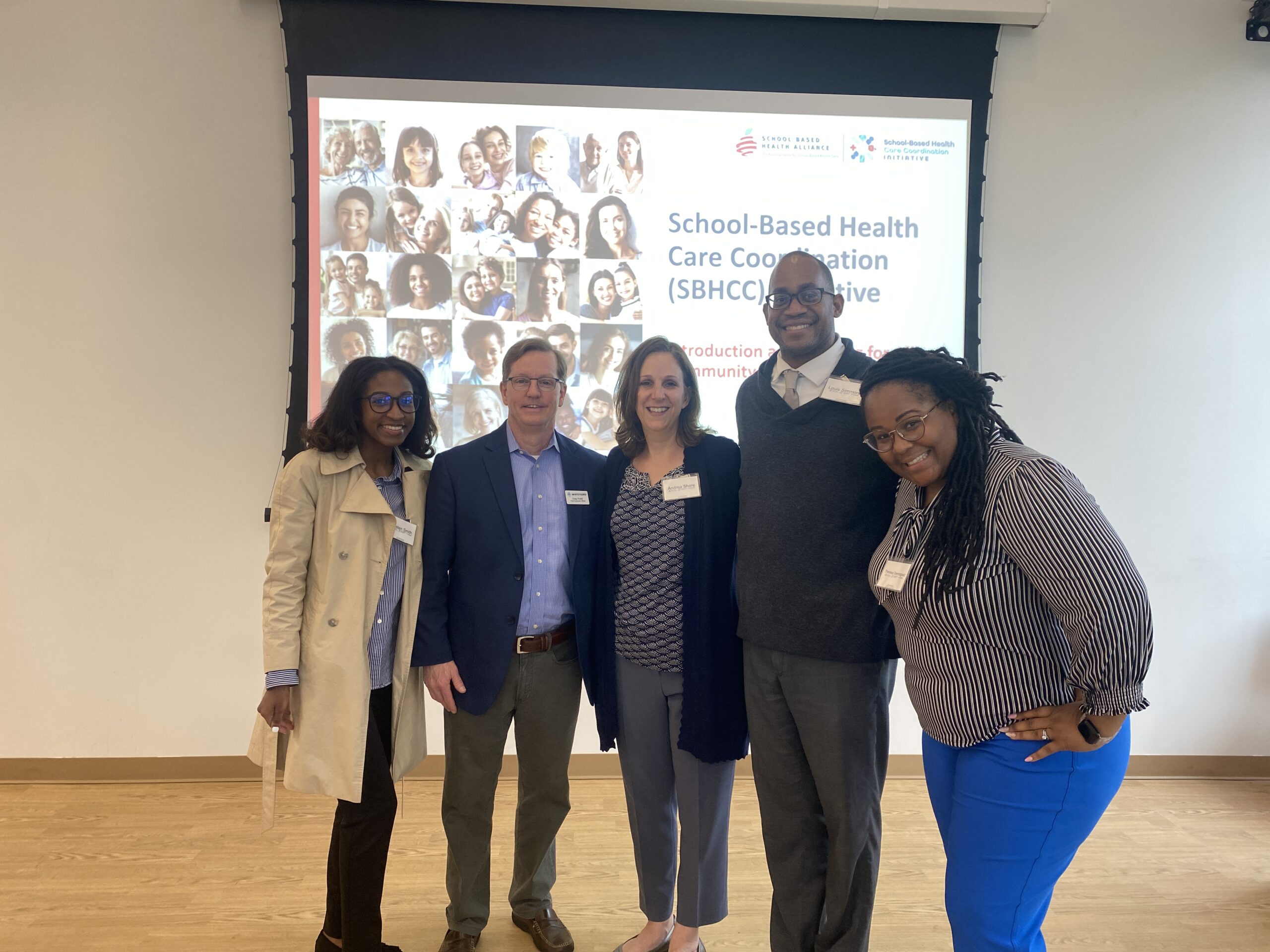Program Launch in All Four Cities




The School-Based Health Alliance, in partnership with federally qualified health centers in Atlanta, Chicago, Houston, and Miami, officially launched the School-Based Health Care Coordination Initiative, a transformative approach designed to enhance student health and educational outcomes through comprehensive care coordination. The partner health centers include Whitefoord, Inc. (Atlanta), UI Health-Mile Square Health Center (Chicago), Legacy Community Health (Houston), and Jessie Trice Community Health System, Inc. (Miami).
In each city, we collaborated with the federally qualified health centers to establish city work groups composed of diverse community members, including students, parents, health center staff, school-based health center staff, educators, school leaders, school health professionals, and other local stakeholders. These work groups are essential in providing valuable insights into the local experiences and needs, ensuring that care coordination is effectively tailored to each community.
The city work groups consist of:
Offering first-hand perspectives on their health needs and expectations for quality care.
Ensuring family voices are integrated into the planning and care experience.
Bringing health care expertise to the table.
Providing direct insights from the frontlines of school –based health care.
Bridging the gap between health and education systems.
Ensuring that school environments support health initiatives.
Including pediatric primary care providers, behavioral health organizations, and other youth-serving entities, enriching the collaborative effort.
Our national team has visited each of these vibrant cities to kickstart the city work groups and tour their school-based health centers. During these visits, crucial discussions took place about the unique community dynamics and resource availability. Despite a wealth of resources, many remain hard to access, highlighting the need for better coordination and trust-building among partners. Here are some powerful insights shared by our community members:
I work in healthcare, and yet I still find myself sometimes not understanding how it all works. Imagine how some of our parents feel.
We strive to provide the services students need when they need it.
Someone who has the lived experience, maybe not even in the care coordinator role or field but if they know how to communicate with people, culturally appropriate and cultural competency is important.
I know the way I work and how I treat people. I hope the people I refer out to treats them the same way. I hope they are going above and beyond, as I do.
The biggest hurdle we face is the need to rebuild trust.
The city work groups have high hopes for the role of school-based health care coordinators. They envision someone who:
Understands the community
Is resourceful
Acts as an advocate
Works well within a team
Shows empathy
Builds strong relationships
We are incredibly excited about the potential of the school-based health care coordination Initiative to make a lasting impact on student health and education. Check out the pictures from our city visits and see the SBHCC Initiative in action!
Stay tuned for more updates and join us in this transformative journey to better health and education for all students. Together, we can build a brighter, healthier future for our communities.
